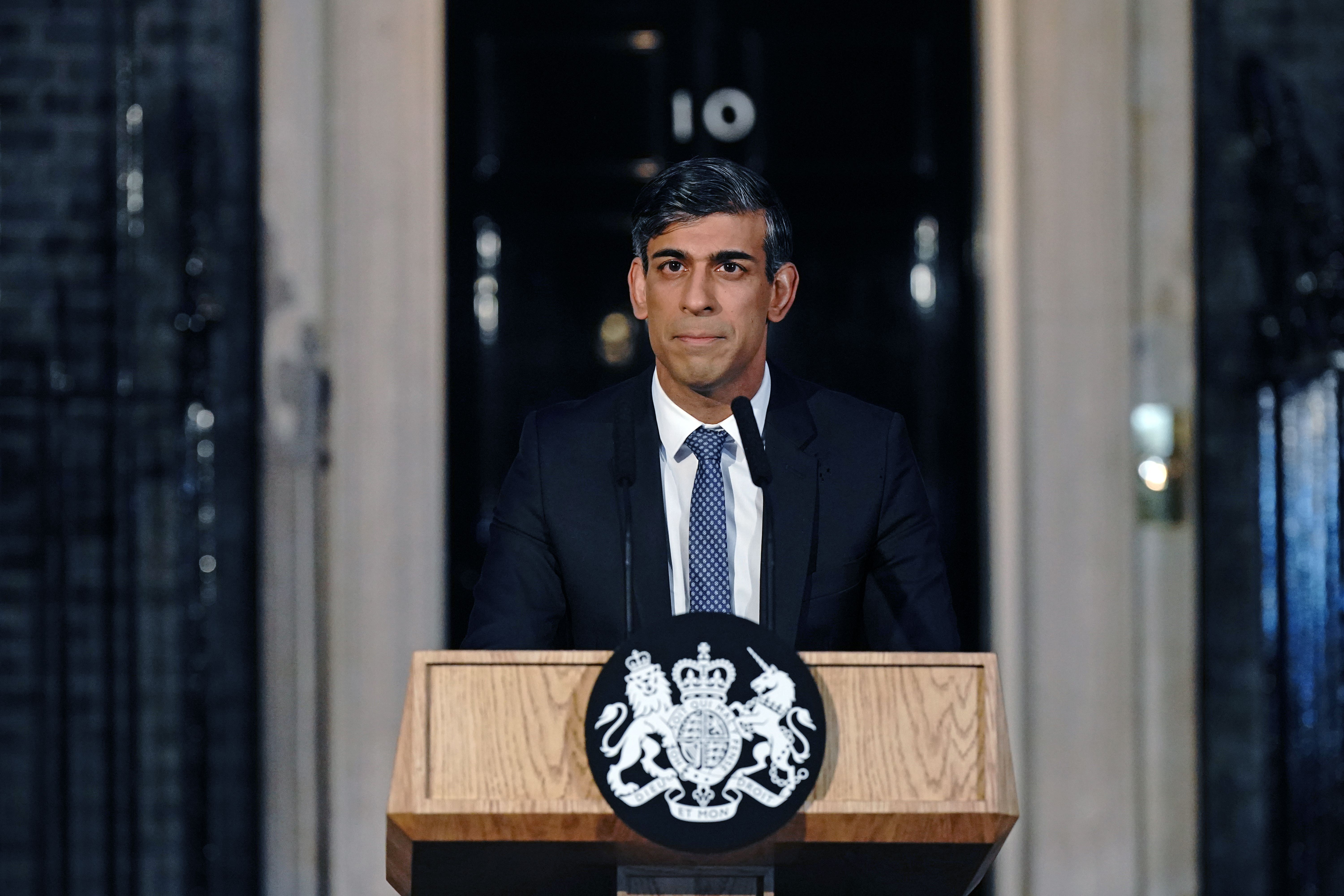Rishi Sunak is right to defend free speech as a core principle of democracy
Editorial: The prime minister’s statement was curious in tone but correct in affirming British values

Rishi Sunak was right to try to set out the boundaries of freedom of expression in his unexpected statement in Downing Street on Friday night. He was right to warn that there are undemocratic elements that are trying to hijack the debate in Britain about the conflict in Gaza.
He was right to argue, as The Independent did yesterday, that it was alarming that the by-election in Rochdale returned a member of parliament who downplays the horror of what happened on 7 October. He was right to warn that “Islamist extremists and the far right”, feeding off each other, are trying to exploit events in Israel-Palestine to try to undermine Britain, “the world’s most successful multi-ethnic, multi-faith democracy”.
He was right to take a stand against intimidation, and he was even-handed in condemning chants and slogans that make Jews feel unsafe on our streets, but also the abuse of visible Muslims for actions of terrorists for whom they are not responsible.
He was correct on the one hand to separate criticism of the government of Israel from the hatred of Jews, and on the other to separate condemnation of Hamas atrocities from prejudice against Muslims.
There were elements of the prime minister’s speech that weakened his message. It was odd to deliver what seemed like an “emergency” address at short notice in response to a by-election. At times, his language seemed abstract and platitudinous; at other points, he sounded like a traffic warden explaining how roundabouts work. He needs to find the words that rise to the level of events.
But the sentiments were right, and it was right that Sir Keir Starmer supported them. The Labour leader said: “The prime minister is right to advocate unity and to condemn the unacceptable and intimidatory behaviour that we have seen recently.”
Sir Ed Davey, the Liberal Democrat leader, on the other hand, struck a sour note, saying: “People will take no lessons from a prime minister and party who have for years sowed the seeds of division.” Of course, there are many questions about the Conservative government’s record on these issues, and indeed on the prime minister’s proposals for the future, but Sir Ed’s gracelessness is a good way to ensure that the Lib Dems remain a minority party.
It would be better if all political leaders approached the difficult implications of the prime minister’s words in a constructive and mutually respectful manner. There are questions about the definition of intimidation and the boundaries of free speech that are not easy to resolve. The prime minister said, for example, that it was unacceptable to “beam antisemitic tropes onto Big Ben”, referring to the slogan “from the river to the sea” that was projected on the Elizabeth Tower during the debate on the Scottish National Party’s call for a ceasefire.
The problem is that the meaning of the slogan is disputed.
It is usually taken to mean that Israel has no right to exist, in any of the land from the River Jordan to the Mediterranean. But it could refer to a one-state solution in which Jews and Palestinians live together, or it could refer to the opposite extreme of a Greater Israel in which all the land belongs to the Jewish state.
Even with the best of intentions, people should realise it is not helpful. Even if it is meant as a call for peace, to some it is a call for war.
The Independent believes that a viable Palestinian state co-existing with a secure Israeli state should be the goal, but defends the right of other opinions to be heard, provided that they eschew incitement to violence or racial hatred.
We should be grateful and proud that in Britain we can debate such questions, most of the time, without fear. We are not Iran or Russia, where even a funeral has riot police. But Mr Sunak is right to use the pulpit of No 10 to remind us that our freedoms are hard-won and must be resolutely defended.
Join our commenting forum
Join thought-provoking conversations, follow other Independent readers and see their replies
Comments